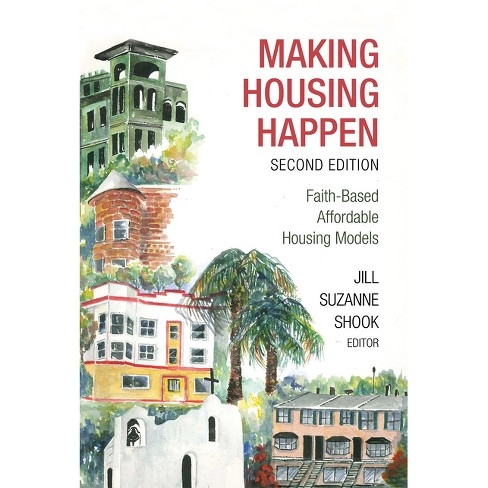Dr. Jill Shook’s Biblical Rationale for Affordable Housing

Dr. Jill Shook authored Making Housing Happen: Faith-Based Affordable Housing Models. Her book was recommended to Gail Haghjoo and Steve Morris by Patty Slough of the United Methodist Church of Palm Springs who is working with LeSar Development Corporation.
Dr. Jill lays out the Biblical case for Sabbath economics. This theology captures a biblical vision of economic and land justice, following the Torah through to Jesus and Paul with broad themes of Sabbath the rhythms needed to sustain all of life: rest every seven days, the earth to rest every seven years, debts forgiven every seven years, and the land returned to the original owner every seven times seven years - the Jubilee.
The United States practices a level of debt forgiveness through bankruptcy laws, farmers still acknowledge that land left fallow is a wise practice, but few people recognize ways the biblical Jubilee is practiced through affordable housing. Jesus proclaimed Jubilee in his Luke 4 mission statement and the early church lived it out in Acts 2-4 by selling land so that no one would be in need. Paul proclaimed the purpose of wealth, that all might have their needs met, in 2 Corinthians 8:14-15 based on lessons from the manna passage. We are called to celebrate an economy of abundance and grace when we follow the Sabbath rhythms.
This is not a theology of socialism, utopianism, or idealism, but the pure and simple gospel lived out both personally and publicly. It is about the longing that God put in each of us for a place. Jubilee perspective pervaded the ministries of both Jesus and Paul, where terms such as "grace" and "forgiveness" have an economic dimension. God moved Israel from landlessness (wilderness and exile) to yearning for and obtaining landedness (the Promised Land). Recurring redistribution of wealth helps no one go without for very long.
Other recommended reading:
The Land – Place a Gift, Promise, and Challenge in Biblical Faith, by Walter Brueggemann
The land was one of the most vibrant symbols for the people of ancient Israel. In the land – gift, promise, and challenge – was found the physical source of Israel’s fertility and life, and a place for the gathering of the hopes of the covenant people. In this careful treatment, Walter Brueggemann provides a point of entrance both to the theology of the Old Testament and to aspects of the New Testament – even as it illuminates crucial issues of contemporary life. Recurring problems with border conflicts, soil and water pollution, and homelessness prompt the author’s reflections on the relation between the biblical traditions and contemporary dilemmas.
The Biblical Vision of Sabbath Economics by Ched Myers
There is enough for everyone is God’s vision of human living, where the world is an abundant gift. It is a vision where we live with gratitude and accept our limits; where forgiveness is not just a spiritual matter but a practical reality for the systems of debt and ownership. In this collection of essays, Ched Myers grasps the nettle of Biblical stories and parables we prefer not to take literally, revealing an ancient standard of social justice waiting to be revived.
1. People rest every seventh day.
2. Land rests every seventh year.
3. Slaves released every seventh year.
4. Debts forgiven every seventh year.
5. Possessions returned to the larger community every 7 x 7 years